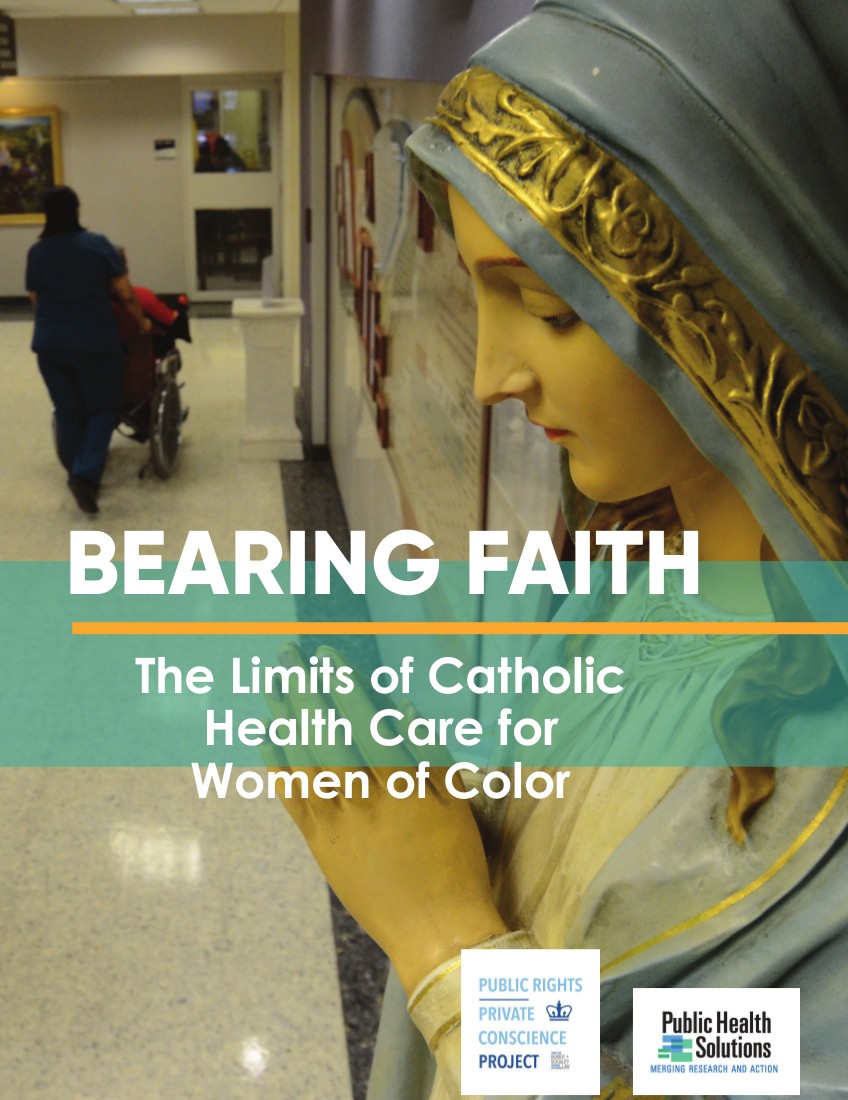Bearing Faith
Bearing Faith: The Limits of Catholic Health Care for Women of Color
In January of 2018, the Law, Rights, and Religion Project published a groundbreaking report, "Bearing Faith: The Limits of Catholic Health Care for Women of Color" with our partner, Public Health Solutions. In the report, the Law, Rights, and Religion Project presents data showing that in many states, women of color disproportionately give birth in Catholic hospitals that place religious restrictions on care—even during medical emergencies. Such restrictions stand to exacerbate the existing disparities women of color already face in accessing quality reproductive health care.

Bearing Faith: Executive Summary
Read the Law, Rights, and Religion Project's Report, "Bearing Faith: The Limits of Catholic Health Care for Women of Color"
As a result of consolidation and mergers in the health care industry, a significant and growing proportion of the U.S. population now receives “Catholic health care”—care at hospitals that are owned or affiliated with the Catholic Church. These facilities are governed by strict guidelines that place religious beliefs above the medical needs of patients. The expansion of Catholic health care has had a disproportionate effect on the sexual and reproductive health care available to women of color in many communities.
“Bearing Faith: The Limits of Catholic Health Care for Women of Color” finds that in a majority of the states we studied, women of color were more likely than white women to give birth at a Catholic hospital. In nineteen of thirty-three states and one territory, Catholic hospitals reported a higher percentage of births to women of color than did non-Catholic hospitals. These results indicate that pregnant women of color are more likely than their white counterparts to receive reproductive health care dictated by bishops rather than medical doctors. The religious guidelines governing care at Catholic-affiliated medical institutions prohibit a wide range of necessary services related to contraception, tubal ligation, and certain treatments for pregnancy complications. The restrictions depart significantly from standards of care established by the medical profession.
These results are especially troubling given that women of color already face numerous health disparities, including disproportionately high rates of maternal and infant mortality, which increases their need to receive reproductive health care that meets the highest professional standards. The report ends by providing policy recommendations for limiting the risks to patients seeking care at Catholic hospitals, risks that in some communities can disproportionately impact women of color.
Questions?
If you have further questions about the report, contact Kira Shepherd, Director of the Racial Justice Program, at [email protected].
